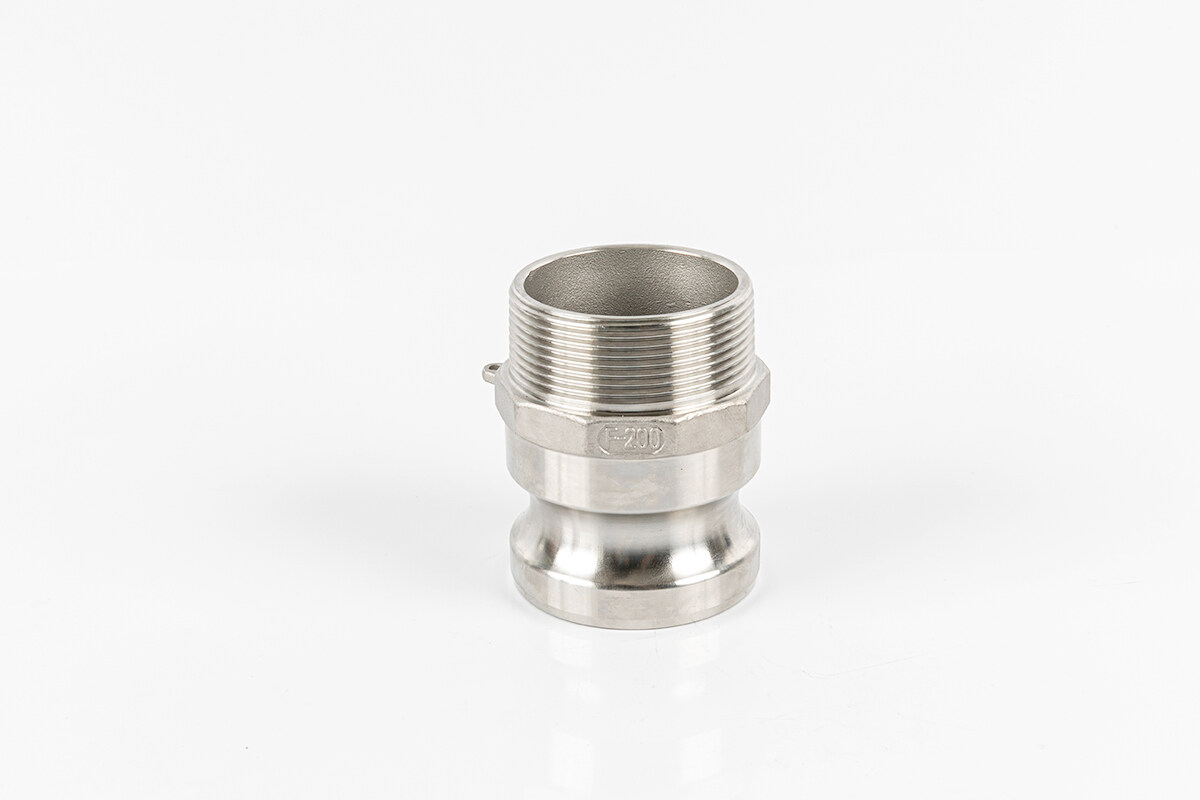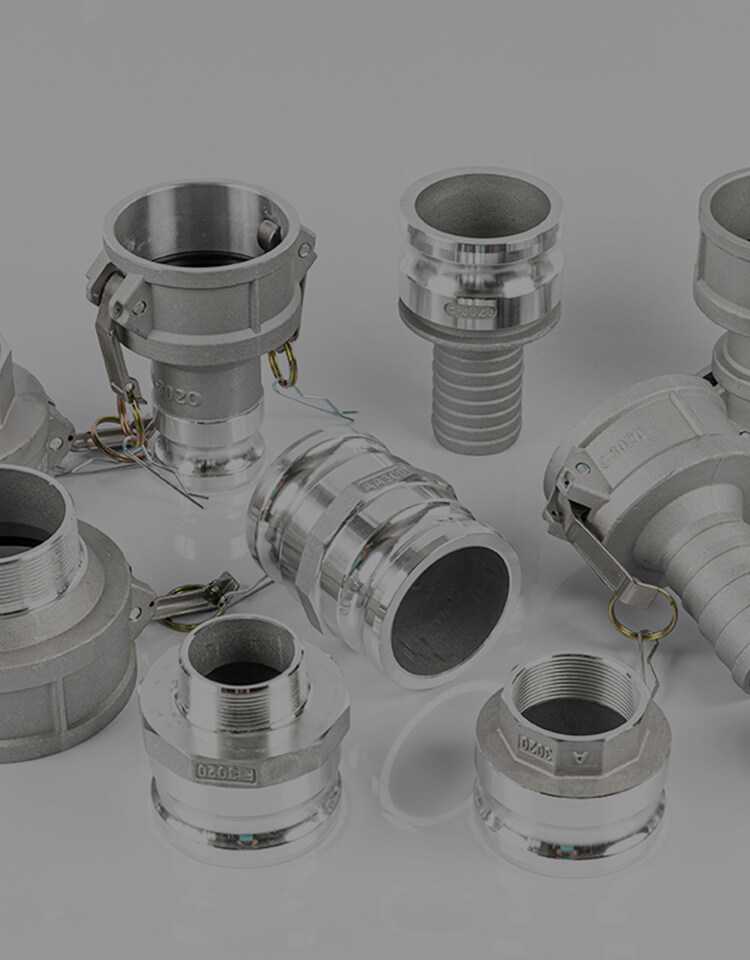E-Mail-Formatfehler
emailCannotEmpty
emailDoesExist
pwdLetterLimtTip
inconsistentPwd
pwdLetterLimtTip
inconsistentPwd

Nachricht
Hier können Sie einen Text beschreiben, den Sie ausdrücken möchten

Stainless Steel Round Coupling Nuts: The Perfect Solution for Secure Connections
When it comes to ensuring secure connections in various applications, stainless steel round coupling nuts are the go-to choice for many professionals. These nuts are designed to provide a strong and reliable connection between two threaded rods or bolts. In this blog post, we will explore the features and benefits of stainless steel round coupling nuts, as well as their various applications in different industries.
Understanding Stainless Steel Coupling Nuts
1.1 What are Stainless Steel Coupling Nuts?
Stainless steelcoupling nuts, also known as extension nuts or rod coupling nuts, are threaded fasteners that are used to join two threaded rods or bolts together. They have internal threads on both ends, allowing them to be screwed onto the threaded rods or bolts to create a secure connection. Stainless steel coupling nuts are typically made from stainless steel, which offers excellent corrosion resistance and durability.
1.2 The Importance of Stainless Steel in Coupling Nuts
Stainless steel is a popular choice for coupling nuts due to its exceptional corrosion resistance properties. This makes stainless steelcoupling nuts suitable for use in various environments, including outdoor and high-moisture applications. The stainless steel material ensures that the coupling nuts can withstand exposure to water, chemicals, and other corrosive substances without rusting or deteriorating over time.
1.3 Advantages of Stainless Steel Coupling Nuts over Other Materials
Compared to coupling nuts made from other materials such as carbon steel or brass, they offer several advantages. Firstly, stainless steel has a higher strength-to-weight ratio, making stainless coupling nuts stronger and more durable. Additionally, stainless steel is non-magnetic, which can be beneficial in certain applications where magnetic interference needs to be minimized. Lastly, stainless steel has an aesthetically pleasing appearance, making them suitable for applications where visual appeal is important.
Exploring Different Types of Stainless Steel Coupling Nuts
2.1 Stainless Steel Half Coupling Dimensions
Stainless steel half coupling nuts are a variation of the standard round coupling nuts. As the name suggests, half coupling nuts have a shorter length compared to full-length coupling nuts. This makes them ideal for applications where space is limited or where a shorter connection is required. Stainless steel half coupling nuts are available in various dimensions to accommodate different thread sizes and pitches.
2.2 Camlock Type Coupling: A Versatile Option
In addition to the standard round and half coupling nuts, there is another type of stainless steel coupling nut called the camlock type coupling. Camlock coupling nuts are designed with a cam mechanism that allows for quick and easy connection and disconnection. This makes them a popular choice in industries where frequent assembly and disassembly of connections are required, such as the fluid transfer industry. The nuts are available in stainless steel, providing the same corrosion resistance and durability as other stainless steel coupling nuts.
Applications of Stainless Steel Round Coupling Nuts
3.1 Construction Industry: Strengthening Structural Connections
In the construction industry, stainless steel round coupling nuts are commonly used to strengthen structural connections. They are often used in conjunction with threaded rods to create secure connections between beams, columns, and other structural elements. The corrosion resistance of stainless steel ensures that the connections remain strong and reliable, even in outdoor or high-moisture environments.
3.2 Automotive Industry: Ensuring Safety and Reliability
In the automotive industry, stainless steel coupling nuts play a crucial role in ensuring the safety and reliability of various components. They are used in applications such as suspension systems, exhaust systems, and engine mounts, where secure connections are essential for proper functioning and safety. The corrosion resistance of stainless steel ensures that the coupling nuts can withstand the harsh conditions and chemicals present in automotive environments.
3.3 Plumbing and Piping: Leak-Proof Connections
Stainless steel round coupling nuts are widely used in plumbing and piping applications to create leak-proof connections. They are used to join pipes, fittings, and valves together, ensuring a tight and secure connection that prevents leaks. The corrosion resistance of stainless steel ensures that the coupling nuts can withstand the corrosive effects of water and chemicals commonly found in plumbing systems.
3.4 Electrical Industry: Securely Fastening Components
In the electrical industry, stainless steel coupling nuts are used to securely fasten components such as conduit fittings, junction boxes, and cable glands. The corrosion resistance of stainless steel ensures that the coupling nuts can withstand the electrical currents and environmental conditions present in electrical installations. Additionally, the non-magnetic properties of stainless steel are beneficial in certain electrical applications where magnetic interference needs to be minimized.
Factors to Consider When Choosing Stainless Steel Coupling Nuts
4.1 Thread Size and Pitch
When selecting the coupling nuts, it is important to consider the thread size and pitch to ensure a proper fit with the threaded rods or bolts. The thread size refers to the diameter of the threaded rod or bolt, while the pitch refers to the distance between each thread. Choosing the correct thread size and pitch ensures that the coupling nuts can be securely fastened onto the threaded rods or bolts.
4.2 Material Grade and Corrosion Resistance
Stainless steel coupling nuts are available in different material grades, each offering varying levels of corrosion resistance. The most common stainless steel grades used for coupling nuts are 304 and 316. Grade 304 stainless steel provides good corrosion resistance in most environments, while grade 316 stainless steel offers superior corrosion resistance, particularly in marine or highly corrosive environments. It is important to consider the specific application and environmental conditions when selecting the appropriate material grade.
4.3 Load Capacity and Strength Requirements
The load capacity and strength requirements of the application should also be considered when choosing the coupling nuts. Coupling nuts are typically used in applications where high tensile strength is required to withstand the applied loads. It is important to select coupling nuts with the appropriate strength rating to ensure that they can safely support the intended loads.
Installation and Maintenance Tips for Stainless Steel Coupling Nuts
5.1 Proper Installation Techniques
Proper installation techniques are crucial to ensure the effectiveness and longevity. It is important to clean the threaded rods or bolts before installing the coupling nuts to remove any dirt, debris, or rust that may interfere with the connection. The coupling nuts should be tightened using the appropriate tools, such as a wrench or socket, to ensure a secure and tight connection. Over-tightening should be avoided, as it can lead to thread damage or failure.
5.2 Regular Inspection and Maintenance
Regular inspection and maintenance are essential to ensure the continued performance of stainless steel coupling nuts. Periodically inspect the coupling nuts for signs of corrosion, damage, or loosening. If any issues are detected, take appropriate measures such as cleaning, lubricating, or replacing the coupling nuts as necessary. Regular maintenance will help prolong the lifespan of the coupling nuts and ensure the integrity of the connections.
Conclusion
Stainless steel round coupling nuts are an essential component in various industries, providing secure and reliable connections. Their corrosion resistance, strength, and versatility make them the ideal choice for a wide range of applications. Whether it’s in construction, automotive, plumbing, or electrical industries, stainless coupling nut plays a crucial role in ensuring the safety and reliability of connections.
By understanding the different types of stainless steel coupling nuts available, considering factors such as thread size, material grade, and load capacity, professionals can make informed decisions when selecting the right coupling nuts for their specific needs. Additionally, proper installation techniques and regular maintenance are essential to maximize the performance and longevity of stainless steel coupling nuts.
In conclusion, stainless steel round coupling nuts are a reliable and durable solution for secure connections. Their versatility and strength make them an indispensable component in various industries. By choosing the right coupling nuts and following proper installation and maintenance practices, professionals can ensure the safety and reliability of their connections. So, next time you need to secure threaded rods or bolts, consider using round coupling stainless steel nuts for a strong and dependable connection.

